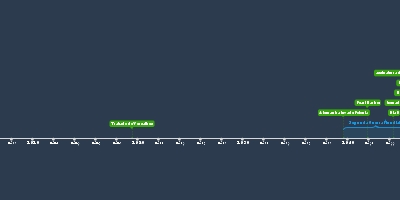Détente (1969-1974) (jan 1, 1969 – jan 1, 1974)
Description:
O período da distensão, "Détente", seguiu-se à Crise dos Mísseis, por ela quase ter levado as duas superpotências a um embate nuclear. Os EUA e a URSS decidiram, então, realizar acordos para evitar uma catástrofe mundial. Nesta época, vários tratados foram assinados entre os dois lados.Détente (French pronunciation: [detɑ̃t], French: "relaxation")[1] is the relaxation of strained relations, especially political, by verbal communication. The term, in diplomacy, originates from around 1912 when France and Germany tried unsuccessfully to reduce tensions.
Most often, the term is used for a phase of the Cold War. It was the policy of relaxing tensions between the Soviet Union and the West, as promoted by Richard Nixon, Henry Kissinger and Leonid Brezhnev, between 1969 and 1974. With the United States showing weakness at the top that forced Nixon out of office, Brezhnev used the opportunity to expand Soviet influence. The Soviet invasion of Afghanistan in 1979 decisively ended any talk of détente.[3][4] The term is also used to refer to the Cuban thaw, which resulted in Cuba and the United States restoring diplomatic relations with each other in 2015.
The term is most often used to refer to a period of general easing of the geopolitical tensions between the Soviet Union and the United States that was a distinct lessening of the Cold War. It began in 1969, as a core element of the foreign policy of US President Richard Nixon, in an effort to avoid nuclear escalation. The Nixon administration promoted greater dialogue with the Soviet government, including regular summit meetings and negotiations over arms control and other bilateral agreements.[4] Détente was known in Russian as разрядка (razryadka), loosely meaning "relaxation of tension".
Added to timeline:
Date:
jan 1, 1969
jan 1, 1974
~ 5 years
